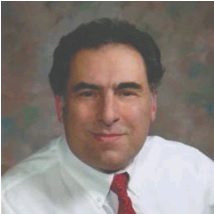Rob Menes, a man of many titles, began as the Executive Director of Congregation Beth Shalom on the same day Rabbi Seth Adelson began here. Both are also hazzanim (they knew each other in cantorial school), both are also engineers, and both graduated from Cornell. As Rob heads back to Vancouver after four years at Beth Shalom, he reflects on his time here.

“The best thing about being here,” Rob posited, “has been working with the team.” He has enjoyed working with the Rabbi, presidents, and trustees, and “the staff have been a joy to work with.” He notes that he has had a hand in hiring about half the current employees. The past few years have moved the congregation from a $350,000 deficit to a balanced budget, and increased membership 10-15% net.
Rob finds that members enjoy being in the building, that it isn’t a place of conflict as many shuls can be. He says that the strength of this shul is in education, at all levels, and that we value lifelong learning. Noting the abundance of lay service leaders, he suggests expanding the base with training for current and new leaders, by a partnership between the trained and the lay. “We need more young adults involved in leading the regular services, and we need our regular leaders to do even more to engage people in the services and communicate the meaning of the liturgy.”
As the executive director, Rob has had to be intimately aware of every aspect of the facility, from the HVAC system to the alarms. The building, Rob states, is large, old, and difficult to maintain. Yet, he especially loves the Sanctuary — it draws him to services and he finds the space uplifting. He notes that there is a lot we can do with the building, if we are willing to make changes.Beyond the building, Squirrel Hill is a special neighborhood, and he hopes that the Jewish community can work together as a whole to form an even stronger group. As an example to the community, Rob is excited about the solar project now funded (through donations and a major grant), as well as the Derekh initiative and the new strategic plan being formulated.
Being an executive director is not simply about facilities, and personnel, and finances. It is also about bringing Jewish ethics to the business of running a synagogue. That means finding opportunities to teach people to struggle with the issues of our time. Rob enjoyed leading Coffee With the Cantor, which he found fulfilling on another level. (His group cherished it as well.) There is a need, he says, for such discussion groups that deal with real issues, infused with Judaism, in a safe space for our eternal struggle with religion and with God. The struggle, he notes, is what Judaism is about: if you can’t voice your struggle, you can’t live your Judaism. Even as an executive director, he was able to teach, lead Friday night services occasionally, and participate in the High Holidays. The boundaries between administration and religious experience were blurred — as they should be!
Rob’s experience in Judaism has taken him from board member (in Victoria, BC) to lay leader, student and hazzan, and executive director, and now he goes forth to serve as a chaplain in a senior residence and hospital. He looks forward to this new position, which will be broader than just Judaism, and which will require him to embrace professionalism in pastoral care. The essence of the job is to identify how a spiritual connection – independent of one’s faith tradition – can enhance the quality of life. He will be studying clinical pastoral care at the Vancouver School of Theology while working, and developing an understanding of psychology, counseling and personal growth.
Rob came to work in the Jewish community after what seems like a lifetime in the private and government sectors. His work has ranged through teaching in the Peace Corps, consulting in statistical analysis, water resource engineering and nonpoint source pollution modeling; research and development in numerical modeling and AI; implementing GIS (including the development of a new language and ISO standard); developing agricultural resource policy for British Columbia and leading strategic planning for the province (his main legacy in that work is that “Food is important” should be a goal); manufacturing ultrasonic measuring devices; optimizing reservoir releases for hydroelectric power; enabling an environmentally responsive ranching industry; and writing environmental assessment legislation. He has worked on aboriginal land claims and national greenhouse gas action plans. And Rob has loved every job he has had.
Rob returns to Margot, who has been a nurse, teacher, and has her Masters in Jewish Education. They have a son and daughter, Kyle and Vanessa, and two grandchildren, Sophia, 5, and August, 3, living in Vancouver. And Jack the Cocker Spaniel awaits Rob’s return as well.
Beth Shalom is greatly improved for Rob’s efforts, and we shall surely miss him.